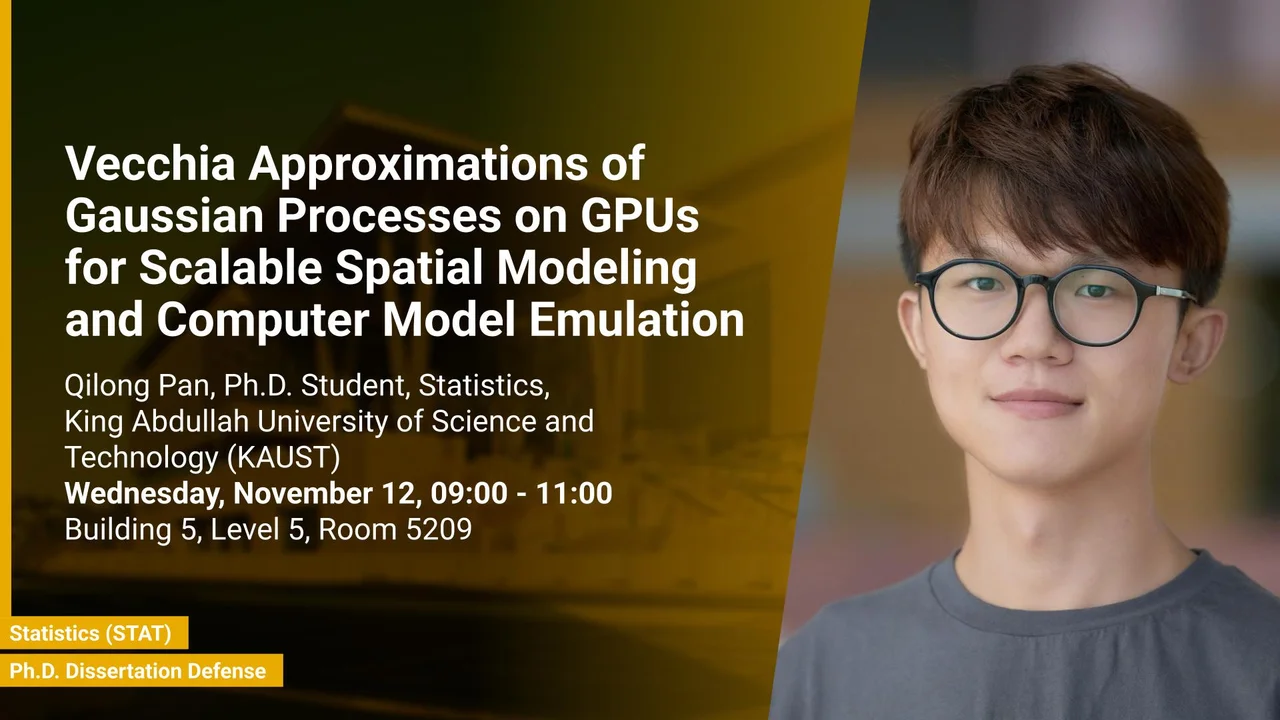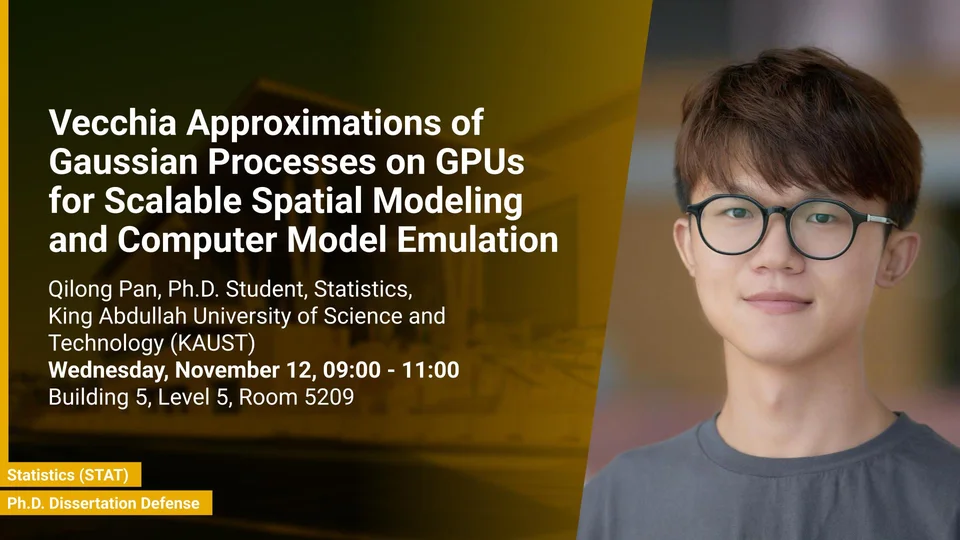
Vecchia Approximations of Gaussian Processes on GPUs for Scalable Spatial Modeling and Computer Model Emulation
This thesis advances the computational efficiency of Vecchia approximation methods for Gaussian Processes (GPs), emphasizing GPU-based implementations for large-scale geospatial analysis and computer emulation. Traditional GPs require expensive covariance matrix inversions, which this work overcomes using scalable Vecchia-based approximations without sacrificing accuracy.
Overview
The first project develops a parallel GPU implementation of the Vecchia approximation using the KAUST Basic Linear Algebra Subroutines (KBLAS) library. This approach accelerates Maximum Likelihood Estimation (MLE), handling up to one million spatial locations with high accuracy on real datasets such as soil moisture and wind speed. The second project introduces the Block Vecchia (BV) approximation, which employs multivariate conditionals via K-means clustering to reduce memory and computation. A GPU-based BV framework achieves efficient scaling for large 3D wind field simulations. The third project proposes the Scaled Block Vecchia (SBV) algorithm for distributed GPU systems, integrating MPI and MAGMA for multi-GPU acceleration. SBV scales to 2.56 billion points and demonstrates near-linear scalability and energy efficiency across 512 NVIDIA GPUs on massive scientific applications. Finally, mixed-precision strategies within BV are explored, showing that combining single and double precision yields stable and efficient computations for large-scale GP inference.
Presenters
Brief Biography
Qilong Pan is a Ph.D. candidate in Statistics at KAUST, supervised by Prof. Ying Sun. His research focuses on scalable Gaussian Process modeling, high-performance statistical computing, and GPU-accelerated inference for large-scale spatial and computer experiment data.


